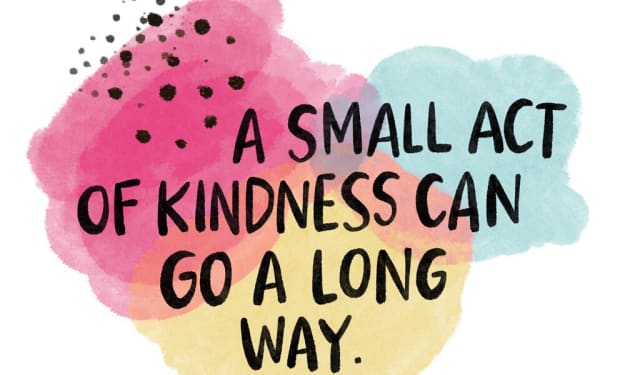Content warning
This story may contain sensitive material or discuss topics that some readers may find distressing. Reader discretion is advised. The views and opinions expressed in this story are those of the author and do not necessarily reflect the official policy or position of Vocal.

The question of what happens when we die is a fundamental inquiry into the nature of existence and the mystery of the afterlife. Throughout history, humans have contemplated this question from various perspectives, resulting in a multitude of beliefs, theories, and philosophies.
One perspective that many religions offer is the concept of an afterlife. Religions such as Christianity, Islam, Hinduism, and Buddhism propose the existence of a soul or consciousness that survives physical death. These belief systems posit that when we die, our souls separate from our bodies and continue on to another realm or plane of existence. This could involve experiences such as going to heaven or hell, being reborn in another life form, or merging with a higher cosmic consciousness. The specifics of the afterlife vary significantly across different faiths, but the underlying principle is that death is not the end, and our existence transcends our mortal bodies.
Another viewpoint is the scientific and atheistic perspective, which posits that death represents the cessation of consciousness and the end of personal existence. From a scientific standpoint, consciousness is understood as a product of the brain, so when the brain ceases to function, consciousness also ceases. According to this perspective, there is no afterlife or continuation of personal identity beyond death. Instead, death is seen as a natural part of the cycle of life, where our bodies decompose and become reintegrated into the natural world.
In recent years, near-death experiences (NDEs) have garnered attention and raised further questions about what happens when we die. NDEs occur when individuals are clinically dead but later revived, and they often involve experiences such as floating out of the body, encountering deceased loved ones or spiritual beings, and feelings of peace and love. While some interpret NDEs as evidence of an afterlife or a glimpse into another realm, skeptics propose explanations such as hallucinations, oxygen deprivation, or brain activity during the dying process. The scientific understanding of NDEs remains a subject of ongoing research, with no consensus reached yet.
Philosophical schools of thought also contribute to the exploration of death and its implications. Existentialists, including Jean-Paul Sartre, argue that death reinforces the importance of individual freedom and the realization that life gains meaning because it is finite. They believe that the awareness of our mortality compels us to confront existential questions and create meaning in our lives. Eastern philosophies, on the other hand, suggest that death represents a merging back into a larger cosmic consciousness and a dissolution of individuality.
In truth, the question of what happens when we die remains unanswered with certainty. It embodies a deeply personal and subjective aspect of the human experience. Each individual's beliefs, experiences, and cultural upbringing shape their perspective on death. While some find solace in the idea of an afterlife or the continuation of consciousness, others find meaning in accepting the finality of death. Consequently, the belief or apprehension about what lies beyond death can greatly influence how we live our lives in the present.
Instead of dwelling solely on the uncertainty surrounding death, it can be valuable to focus on embracing life and cherishing the connections and experiences we have in the present moment. Drawing meaning from our relationships, accomplishments, and the legacy we leave behind can provide a sense of purpose and fulfillment. By cultivating compassion, kindness, and empathy while we are alive, we can contribute positively to the world and leave a lasting impact on future generations.
In the grand scheme of existence, whether death is the final end or merely a transition to another realm remains unknown. It is a question that may continue to elude us, emphasizing the importance of embracing the beauty and complexities of life while we have the opportunity to do so.
About the Creator
Enjoyed the story? Support the Creator.
Subscribe for free to receive all their stories in your feed. You could also pledge your support or give them a one-off tip, letting them know you appreciate their work.





Comments
There are no comments for this story
Be the first to respond and start the conversation.